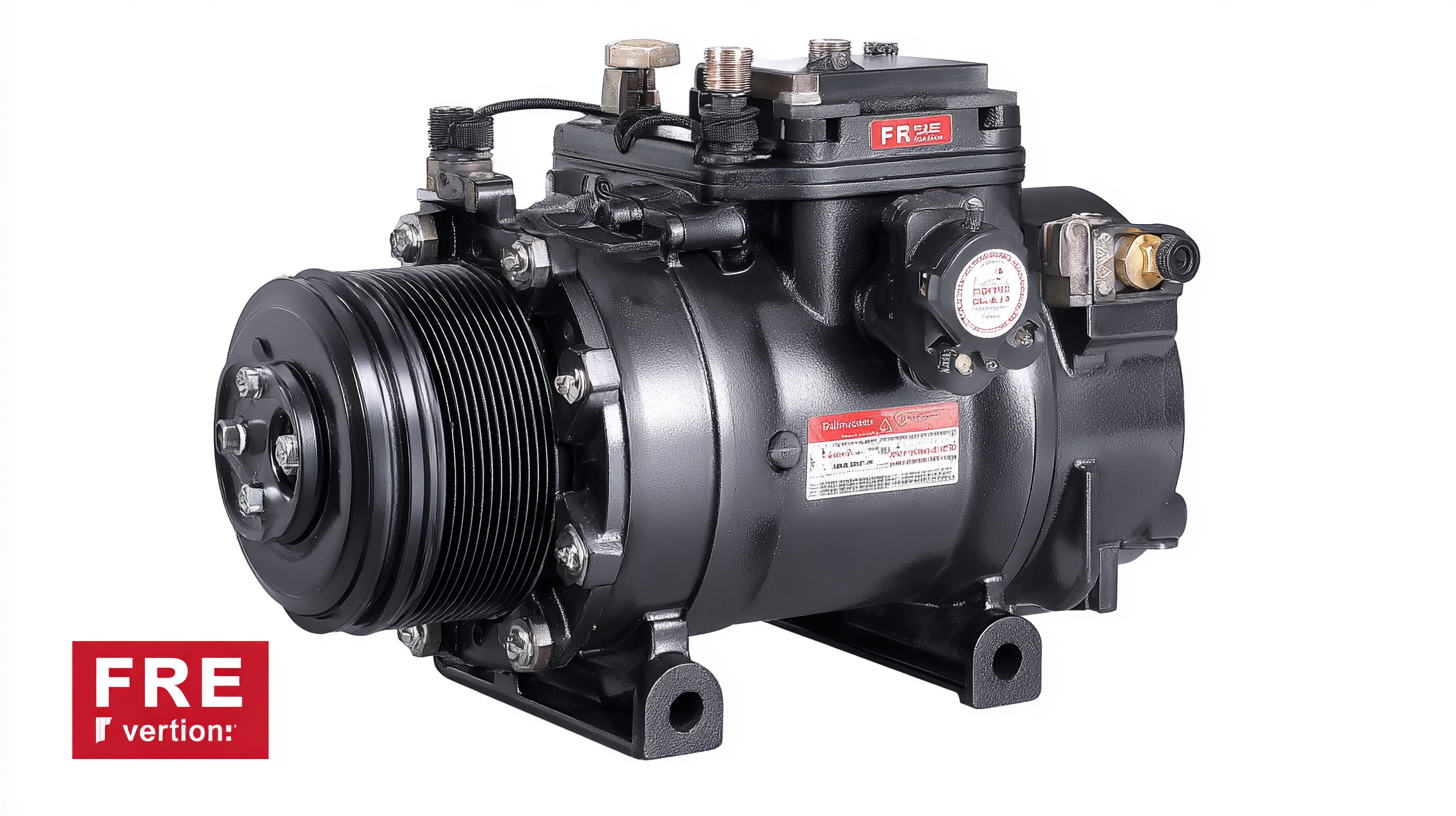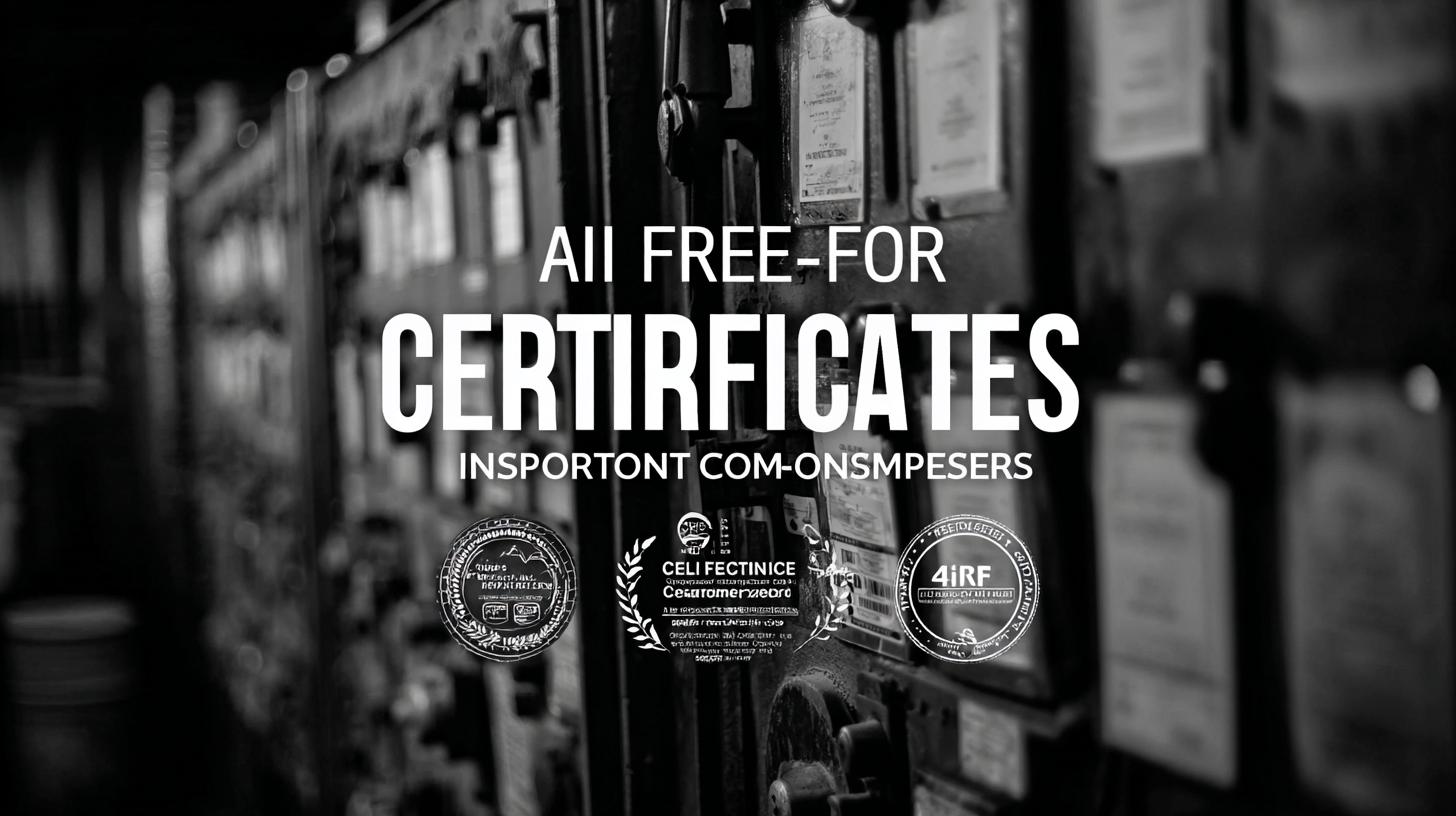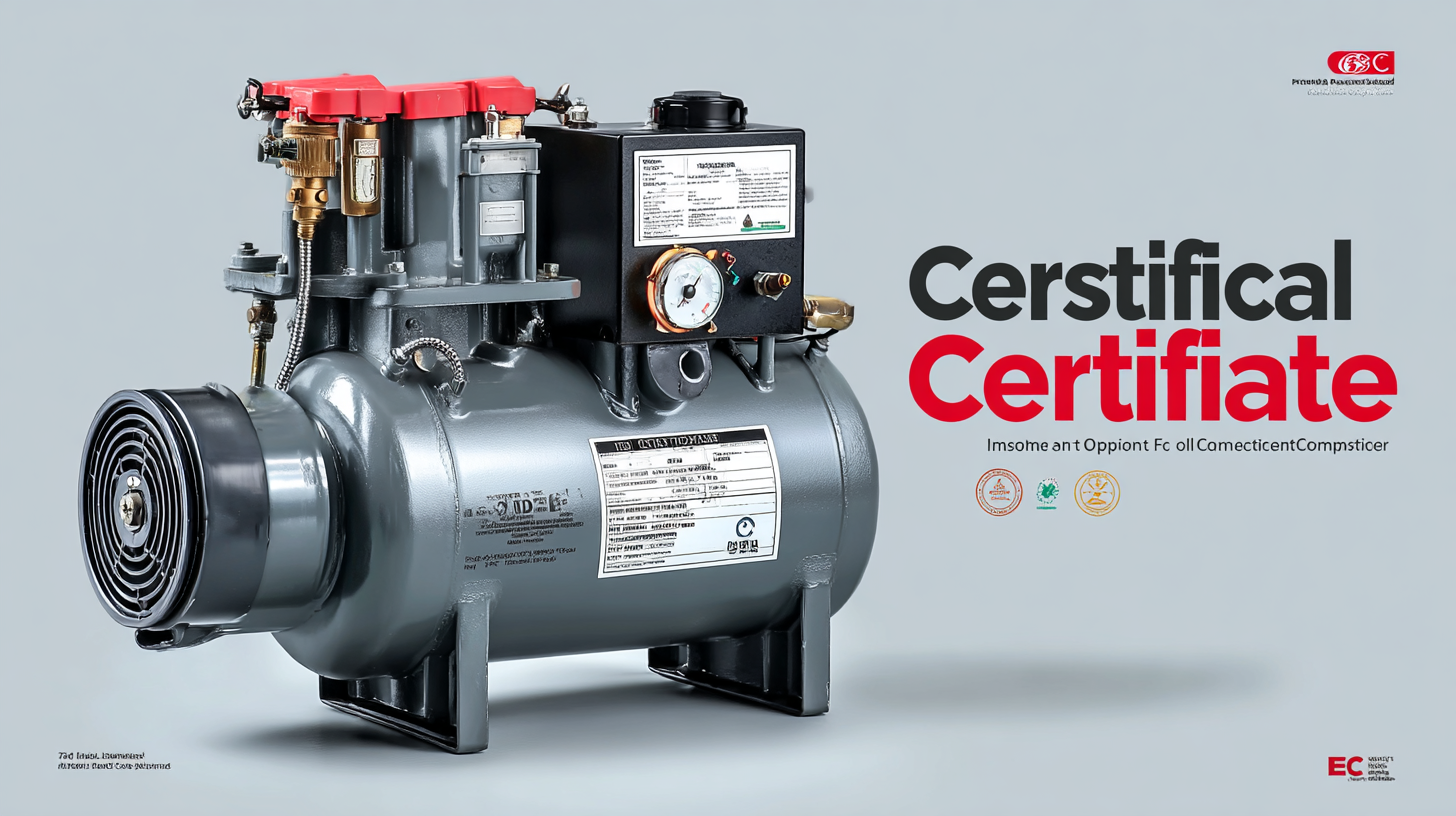
Essential Guide to Import and Export Certifications for Best Oil-Free Air Compressors
In today's industrial landscape, the demand for reliable, efficient, and environmentally friendly equipment is on the rise, particularly in the air compressor sector. According to a report by Markets and Markets, the global oil-free air compressor market is expected to reach USD 10.1 billion by 2025, growing at a CAGR of 5.3%. This trend underscores the increasing importance of oil-free air compressors, which are favored for their ability to deliver clean air, reducing contamination risks in sensitive applications such as food processing and pharmaceuticals. However, navigating the complex landscape of import and export certifications is crucial for ensuring compliance and maximizing market opportunities. This essential guide aims to provide a comprehensive overview of the necessary certifications for oil-free air compressors, equipping manufacturers and distributors with the knowledge they need to thrive in this competitive market.

Key Oil-Free Air Compressor Certifications You Need to Know in 2025
As the demand for sustainable and energy-efficient solutions continues to grow, understanding the key certifications for oil-free air compressors is essential for businesses planning to invest in this technology in 2025. Certifications such as EPA Tier 4 Final are vital, ensuring that the compressors meet stringent environmental regulations. These certifications not only demonstrate a commitment to reducing carbon emissions but also enhance the credibility of manufacturers in a competitive market.
 The Asia Pacific region is witnessing significant growth in the oil-free air compressor sector, with market predictions indicating an increase to USD 5.41 billion by 2033. This growth underscores the importance of certifications that assure potential customers of quality and compliance with industry standards. With advancements in technology like STABILISOR enhancing compressor performance, staying informed about essential certifications will empower buyers to make knowledgeable decisions, ensuring they are equipped with high-quality, reliable, and environmentally friendly equipment.
The Asia Pacific region is witnessing significant growth in the oil-free air compressor sector, with market predictions indicating an increase to USD 5.41 billion by 2033. This growth underscores the importance of certifications that assure potential customers of quality and compliance with industry standards. With advancements in technology like STABILISOR enhancing compressor performance, staying informed about essential certifications will empower buyers to make knowledgeable decisions, ensuring they are equipped with high-quality, reliable, and environmentally friendly equipment.
Understanding Regulatory Compliance for Import and Export of Air Compressors
When engaging in the import and export of oil-free air compressors, understanding regulatory compliance is crucial for ensuring a smooth transaction. Different countries have specific standards and certifications that air compressors must meet to be legally traded. Compliance with these regulations not only enhances product safety but also boosts marketability.
Importers and exporters must familiarize themselves with certifications such as ISO standards, CE marking in Europe, and any local statutory requirements that may apply to their products. This knowledge is vital in avoiding delays and potential fines associated with non-compliance.
Furthermore, it’s important to consider environmental regulations that pertain to manufacturing and the operational efficiency of air compressors. Many regions now have stringent laws that aim to minimize environmental impact. This means that importers and exporters must ensure their products are energy efficient and adhere to emissions standards. Awareness of these compliance factors can greatly influence strategic decisions and negotiation processes, enabling businesses to navigate the complexities of international trade more effectively. Understanding the certification landscape not only ensures adherence to laws but also positions companies as responsible players in the global marketplace.
Industry Trends Impacting Oil-Free Air Compressor Standards by 2025
As we look towards 2025, the landscape of oil-free air compressor standards is set to evolve significantly, driven by emerging industry trends and technological advancements. The Asia Pacific oil-free air compressor market, for instance, is projected to grow from USD 3.46 billion in 2025 to USD 5.41 billion by 2033, reflecting a robust compound annual growth rate (CAGR) of 5.76%. This growth is largely propelled by increasing demand for energy-efficient and smart compressors, which prioritize performance and reliability while minimizing environmental impact.
In this competitive market, businesses seeking to stay ahead must be mindful of several key factors. First, investing in energy-efficient models is essential not just for compliance, but also for reducing operational costs. Additionally, staying informed about new certifications and industry standards will help ensure that your equipment is aligned with best practices and regulatory requirements.
Tips for navigating these changes include regularly updating training for staff on the latest technologies and practices in compressed air treatment. Furthermore, consider integrating IoT solutions to monitor performance and maintenance needs actively. By adopting these strategies, companies will be better positioned to adapt to the evolving market, enhance their operational efficiency, and meet the anticipated pressures of the upcoming standards by 2025.
Oil-Free Air Compressors Certification Trends by 2025
A Step-by-Step Guide to Acquiring Necessary Certifications for Compressors
When venturing into the world of oil-free air compressors, obtaining the necessary certifications is essential for compliance and marketability. Start by identifying the specific certifications required for your region. In the United States, for example, certifications might include those from Underwriters Laboratories (UL) or the American National Standards Institute (ANSI). Researching the industry standards that apply to your compressor type will streamline the certification process.
Tips: Always keep an eye on the latest regulations in your industry; standards can evolve. Additionally, collaborate with an experienced certification agency that specializes in your product type. They can guide you through the intricate details of documentation and testing.
Once you have identified the necessary certifications, the next step is to prepare your product for evaluation. This involves rigorous testing to ensure your oil-free air compressor meets the required performance and safety standards. Maintain meticulous records of your design, manufacturing processes, and any preceding tests to support your application.
Tips: Use quality assurance checkpoints throughout your manufacturing process to identify potential issues early. This proactive approach can save time and resources, preventing delays in certification.
Best Practices for Exporting Oil-Free Air Compressors Globally in 2025
In 2025, exporting oil-free air compressors will require businesses to adhere to strict certification standards and best practices to ensure global competitiveness. According to a report by Research and Markets, the global market for oil-free air compressors is projected to reach $8.4 billion by 2025, driven by increasing demand in industries such as food and beverage, pharmaceuticals, and electronics. Adopting best practices for compliance with international certifications—including ISO 8573 for air quality and ASME standards for safety—will be crucial for manufacturers aiming to penetrate new markets.
Moreover, awareness of regional regulatory requirements is essential. For instance, the European Union's EcoDesign Directive mandates energy efficiency benchmarks that oil-free air compressors must meet to access the European market. As highlighted in a recent study by MarketsandMarkets, failure to comply with these standards can result in significant financial penalties and hinder market entry. By focusing on high-quality certifications and understanding regional regulations, companies can not only enhance their product offerings but also build trust with clients worldwide, positioning themselves as leaders in the oil-free air compressor sector.

